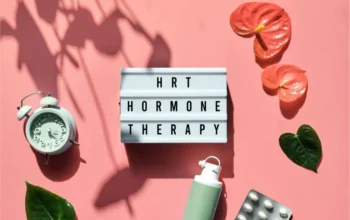Fasting before chemotherapy treatment has been shown to help heart cells maintain normal autophagy activity in imaging tests using nanoparticles.
Recenly, a team headed by scientists at Massachusetts General Hospital created a nanoparticle probe that can identify signs of chemotherapy-induced cardiac damage.
Chemotherapy for cancer patients can be a life-saving procedure, but some of these medications can harm the heart. A team led by scientists at Massachusetts General Hospital (MGH) has developed a nanoparticle probe that can identify an indicator of chemotherapy-induced heart damage.
Experiments using the probe also showed that intermittent fasting before treatment can stop the development of this heart damage indicator in cancer-bearing mice, preserving cardiac function and extending survival.
The research, which was published in Nature Biomedical Engineering, focused on autophagy, a mechanism through which cells eliminate extraneous or unhealthy components. Reduced levels of autophagy have been linked to cardiovascular disease and other illnesses, but autophagy can also be a major driver of cell death, creating a delicate balance between its beneficial and harmful consequences.
An autophagy-detecting nanoparticle was created by David E. Sosnovik, MD, and his colleagues that enables researchers to non-invasively measure autophagy activity within the body using either fluorescent or magnetic resonance imaging. Dr. Sosnovik is the director of the Program in Cardiovascular Imaging at MGH’s Martinos Center for Biomedical Imaging.
When the scientists intravenously injected the nanoparticles into mice with cancer, they could measure changes in autophagy in heart tissue under different conditions, such as after chemotherapy. For example, the nanoparticles detected reduced autophagy activity in heart cells exposed to the chemotherapy drug doxorubicin, which can cause heart damage. However, treatment with statins or fasting before doxorubicin treatment allowed the animals’ heart cells to maintain normal autophagy activity.
“We show with our nanoparticle that intermittent fasting—drinking water but no food for 24 hours before the chemotherapy is given—restores autophagy, eliminates the damage to the heart muscle, and even improves overall survival,” says Sosnovik, the senior author of the study.
Sosnovik stresses that complementary research in humans is needed, especially since the effects of fasting on autophagy in a tumor are unclear. “We are not suggesting that patients today fast before their chemotherapy. This is something that will need to be studied further in controlled and vigorous clinical trials,” he says. “However, our paper provides important insights that may affect clinical care in the near future.”
Also, the team’s autophagy-detecting nanoparticles could be used to gain a better understanding of the role of autophagy in a broad range of diseases.



